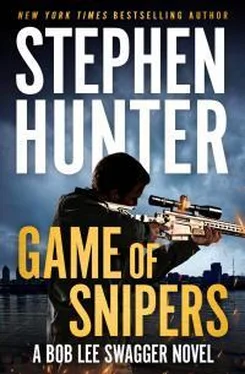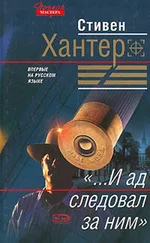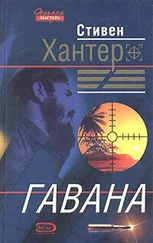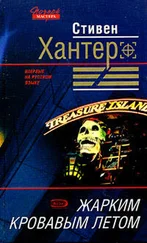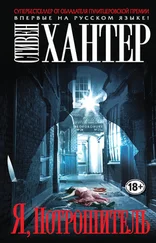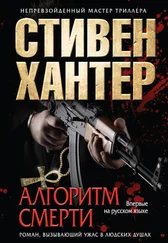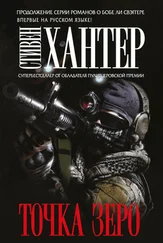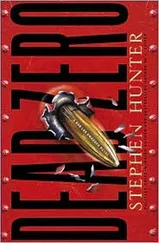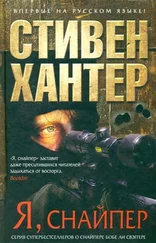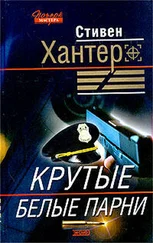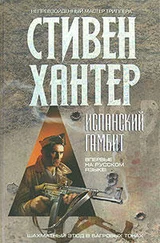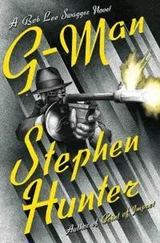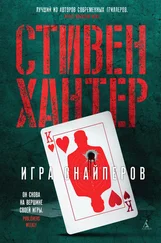His assistant came to him, and the two men slapped hands.
Renegade walked onto the green.
1502.37
On the roof, under the thunder of beating rotors, Nick was leaning into the cockpit of the State Police helicopter, screaming at the pilot.
“Stay low, due east, Lieutenant, you’re zeroing in on the National War College at river’s edge, can’t miss it, huge building, like a temple, or a capitol, or something.”
“Yes, sir,” the pilot was saying.
“You have to go beyond to the middle of the river. We’ll be looking at the tallest building in Anacostia with river frontage — say, a mile off the War College. Your copilot is on binocs, I’m on binocs, we’re looking for an upper-story window that’s open. He won’t be hanging out, he’ll be well back. You want to insert yourself between him and his target. We’ll take the shot if we have to, Swagger will counterfire if he gets—”
“Sixth floor,” shouted Bob. “He was sixty-seven feet higher than the target in Wyoming. Each story ten feet. He’ll be on the sixth floor!”
And at that point, Neill spilled onto the roof, rifle in one hand, box of red Hornady ammo in the other. Chandler was just behind.
“It’s Juba’s,” he said. “It was one floor down, so much closer.”
Swagger and Nick ran to the chopper and climbed in, and Neill reached them a second later. He handed the weapon to the sniper.
It was familiar to Swagger, knowing its curves, its feel, its distribution of weight, its easy pointability. He’d used it in Vietnam, Remington’s classic 700, as solid and tight as any assembly line could turn out.
“They haven’t touched it?”
“Not yet,” said Neill.
Swagger rotated into the hatch of the helicopter, going naturally to prone, rolling slightly to the right to pry open the red box of Hornady 6.5 Creedmoor — one was missing, and he knew what had happened to it — and began threading them into the well in the receiver revealed by the pulled-open bolt.
“Time to hunt,” he said, but nobody heard him.
1503
The man walked to the ball on the green, bent to examine it, walked to the pin, bent to examine it — had he never seen one before?—but would not be still. He was mapping his stroke to the most precise degree, he stopped for a brief chat with his assistant, who offered him some sort of counsel, he stepped off the green to squat and peer at the ball in relation to the hole and the course its trajectory had to follow to arrive squarely, then stood up.
It was evidently an important shot, even if he had balls in his pocket and in the golf cart.
But he would not stay still, he would not begin his fatal address of the ball, which would put him in the kill box.
Juba monitored his own breathing, enjoying the fact that he was so calm, that things were progressing so well.
He had a brief flash of what happened after the shots.
Close the window.
Launch the hate pages to the Dark Web.
Make a last quick check that no traces of Juba remained.
Dump the gloves, mask, and cap in the getaway bag.
Slip out the door, which would lock behind him.
Go to the street without hurry or urgency.
Walk due south on Martin Luther King Jr. Drive and look for a black BMW SUV to pick him up.
He came out of his projection and back to the scope.
The golfer finally had come to the ball and was preparing for the putt.
1503.23
City and river slid by in a blur as the craft ate the distance between the FBI roof and the Anacostia River. Vibration, like a charge of electricity, roared through everything. The wind was a primal reality, bashing at him.
Bob lay prone on the deck of the bird, legs splayed for stability. He hadn’t gone to a shooting position yet because he didn’t want to hold it before he had acquired a target. But the rifle against his shoulder, its barrel projecting outward to the broad bright expanse of reality that was before him, was reassuring.
He wore a headset and throat mic, and now used it to address the pilot, “Lieutenant, if I have to shoot, can you hold her steady?”
“Yes, sir,” came the pilot’s reply. “Give me a second’s notice, and I’ll go to autorotate, which means I cut the engine, tune the blades, and we just sustain ourselves on the rotation without the buzz. I’ve only got about ten seconds, though, before I have to power up.”
“Got it, and great. I’ll sing out.”
The copilot said, “It’s got to be that newer building. The upper floor would get you the vantage.”
“Yeah,” said Nick. “If he’s anywhere, he’s there.”
“Okay, boys,” said the pilot, “I’m laying myself right in his angle on the target. I’m coming around and holding. Find him for the sniper. Find him.”
1504
Now at last.
The man was still. He bent over the ball, addressing it squarely, all his attention focused on it. He did not know that the red dot of Juba’s 5.5×25×56 Schmidt & Bender lay without tremor or remorse upon the center of his body and that Juba’s finger caressed the curve of the trigger, that all systems were perfect, that it was only a matter not of technique but will.
Juba’s focus went to the dot, not the target, and his trigger finger began its microprogress—
And then the image disappeared.
Something blurred and heavy settled between himself and it, and he recognized the shape as a helicopter. His fingers flew to the focus ring, and he dialed the blur to sharpness. And now he recognized the open hatch and, in one corner of it as if from his nightmares, bent and concentrated and unmoving, the American sniper.
1505.5
“Open window, middle, top floor!” screamed Nick.
“On it,” Bob replied. “Lieutenant, go to auto.”
The bird’s roar ceased, and there was a moment of stillness as the rotors sustained the machine of their own without the assistance of power but purely on the laws of aerodynamics, sucking the strength of the atmosphere through their canted blades. And in that pause Bob went hard to shooting position lock-in, rifle tight, eye centered on scope, finger on trigger, saw the open window and, though darkened, what could only be the silhouette of a man hunched over a rifle.
Without willing it, he fired, even as he read the flash from the other’s muzzle.
1504.066
He fired. The American sniper fired.
It was too late, of course.
He was where fate and destiny had decreed, in another’s crosshairs, even as that other was in his own. The flashes were simultaneous, even at that range, and the time in flight was as well.
It had to happen. It did. Now, here, today, this minute, this second, this fraction of a second.
He entered the light.
1504.079
“Bingo!” screamed Nick. “Brains on the ceiling, baby, you nailed his ass. Oh god, what a shot, what a shot, Swagger is the best. Did he shoot? I thought I saw flash. Did he—”
He looked down to see Swagger, face flat on the deck, as if dumped loosely on his rifle, now flattened under him.
“Swagger!” he yelled.
He bent, touched the man’s neck for pulse and found the feeblest excuse for one, a weak pumping. A pool of blood began to roll across the deck, vibrating as the pilot powered on and revved the torque.
“Swagger?”
He pulled him half up, saw the chalk-white face, the unfocused eyes, just the faintest tremor of breath.
“Lieutenant, go to nearest shock trauma, fastest, someplace set up with helicopter pad, fastest. I say again, fastest! Copilot, radio ahead, tell them we have medical emergency incoming, severe gunshot trauma, lung or chest. Get people on roof to get him into surgery. I say again: Emergency! Emergency! Emergency!”
Читать дальше
